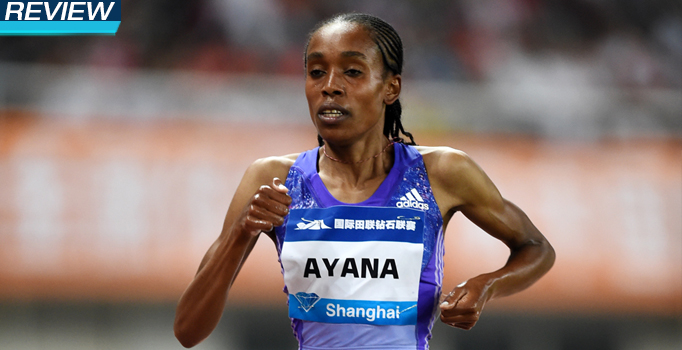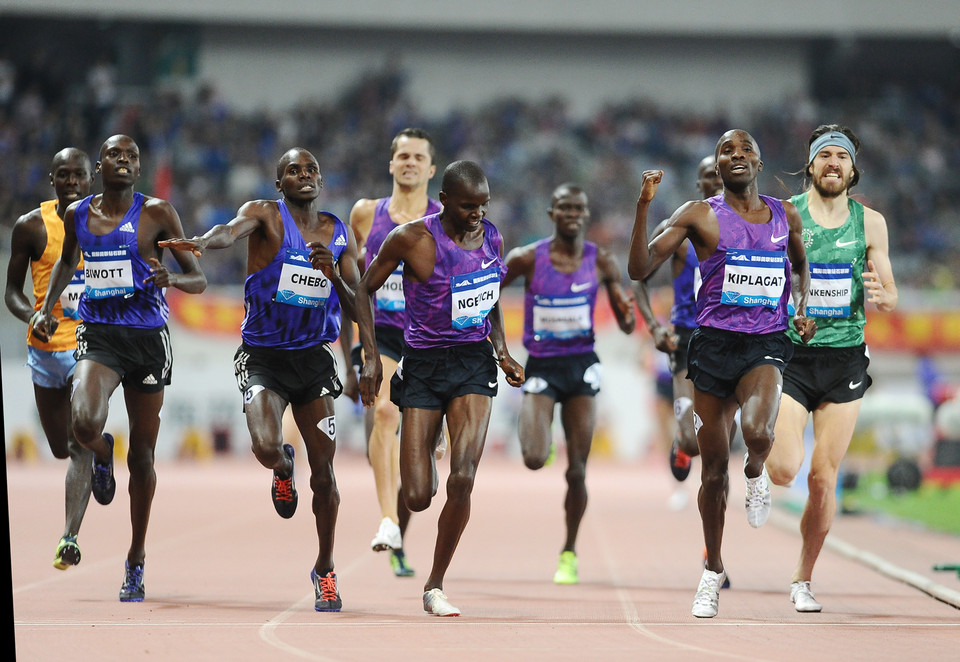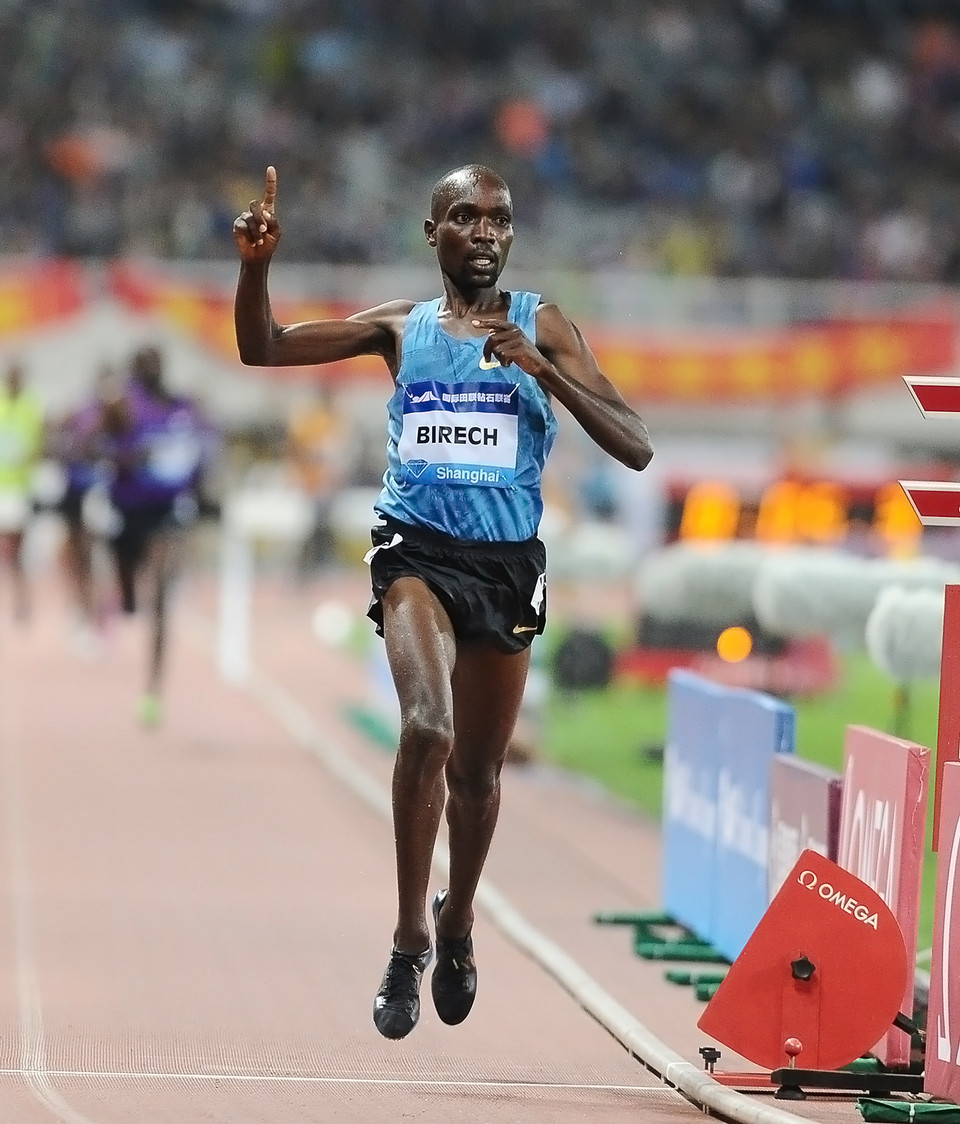If that was the script, nobody told Almaz Ayana, who stole the show with a runaway victory in the women’s 5000m, running the third-fastest time ever in the process.
Just going faster and faster, Ayana smashed her rivals to win by about 150 metres in 14:14.32.
It was a personal best, a meeting record, an Asian all-comers’ record and an IAAF Diamond League record. Only world record-holder Tirunesh Dibaba (14:11.15) and Meseret Defar (14:12.88) have ever gone faster and Ayana might have topped those times too had she had more competition over the last half of the race.
It would be stretching credulity to call the 23-year-old Ayana an unknown. She took the bronze medal at the 2013 IAAF World Championships and last year won the IAAF Continental Cup in Marrakech. She has form.
Two years ago, Ayana clung resolutely to Dibaba’s heels as her more illustrious countrywoman ran 14:23.68 at the Paris IAAF Diamond League meeting. Ayana’s reward then was second place in 14:25.84, which remained her personal best coming into Shanghai.
On a cool Sunday night which inevitably suffered a little in contrast to Friday’s IAAF Diamond League opener in Doha, Ayana led after five laps and ran solo from just before the 3000m mark.
At that stage, Kenya’s Viola Kibiwot was still vaguely in contact, but in reality, her only hope of catching Ayana would have been to hail a taxi. Even then it would have been doubtful as the field was spread out all around the track.
It was never hard to spot Ayana, however; you just looked for the woman who was obviously running fast.
With Global Sports physiotherapist Joost Vollaard helping with translation, Ayana said she was not aware of how close she was to the world record.
“I was trying for 14:20, I didn’t think of the world record,” she explained. “I was surprised; it was much faster than I had in mind.”
Ayana comes from Benshangul, but is based in Addis Ababa, training just outside the city. She is coached by her husband, 1500m runner Soresa Fida
Ayana wants to run the 5000m only at the World Championships in Beijing later in the year. Ethiopian selection will be by time, so her performance in Shanghai should have clinched a place. She said she would like to attack the world record in Beijing, but winning was a higher priority. A more obvious possibility may be when she runs against Genzebe Dibaba at the IAAF Diamond League meeting in Oslo.
It is an ill wind which blows nobody good, as the saying goes, and while the cooler conditions in Shanghai may not have been as favourable to the explosive events, three of the six world leads at the meeting came in the middle distances.
Besides Ayana’s stunner, Silas Kiplagat ran a world lead in the men’s 1500m, as did Jairus Birech in the 3000m steeplechase.
The other three world leads came from Gong Lijiao in the women’s shot put, Nikoleta Kiriakopolou in the women’s pole vault and Mutaz Essa Barshim in the high jump.
Kiplagat, who ran the fastest time in the world last year, produced a trademark stunning finish to take the 1500m in 3:35.29. Nixon Chepseba took over the lead after 800m and produced a 56.34 third lap. The leader’s split for the last 300m was 41.73, but Kiplagat would have been a tick or two quicker.
Less than a second covered the first eight finishers, but there was never any doubt about the winner.
Birech dominated the steeple after Haron Lagat and Bernard Nganga had taken him through 2000m in 5:38.22. By that stage, he was decisively clear of Paul Kipsiele Koech in second place.
At the bell, Birech was still nominally a chance for something near eight minutes, but he could not find the extra speed required. He won in 8:05.36 from Koech (8:11.39) and Conseslus Kipruto (8:14.59).
Len Johnson for the IAAF and the IAAF Diamond League
17 May, 2015








